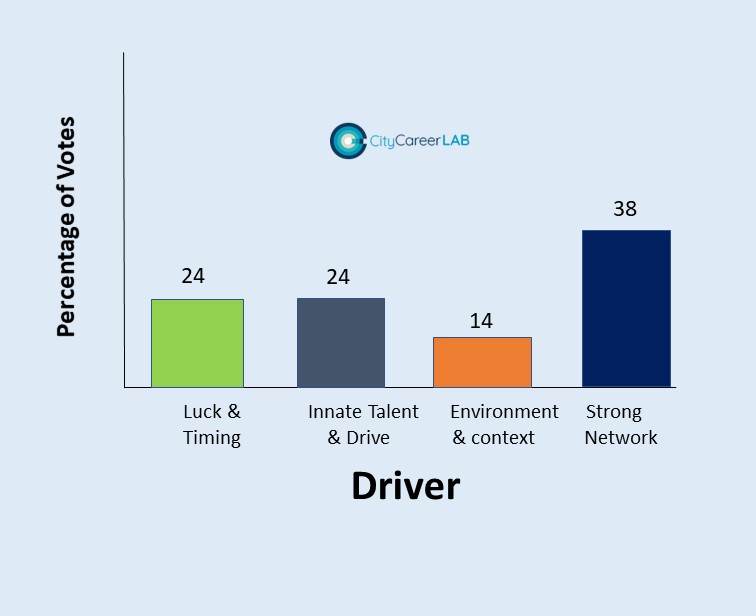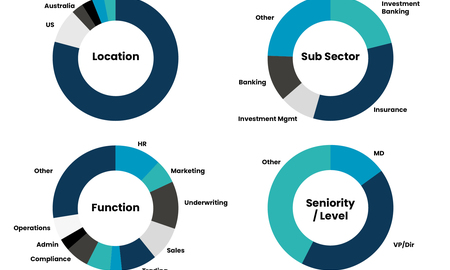What is the single biggest driver of career success in financial services?
Jul. 13, 2021, at 07:27 AM

City Career LAB ran a poll on Linkedin earlier in the year to find out which factor our connections thought was the biggest driver of career success in Financial Services.
As the graph illustrates, having a strong network was the clear winner. This was the predictable part of the result for me. Very few people won’t have called on their network at one point of their career or another - whether that’s being recruited by your old Boss, being referred to a head-hunter by an unknown member of your network, or just having a greater awareness of the full range of opportunities across a labour market. However, you could suggest that the result was somewhat rigged considering I was using the worlds biggest professional networking site to host the poll.
Even the unluckiest of people among us will have experienced some luck and or benefitted from fortunate timing at some point in their career. Infact, one observation I have as a career coach is how much and often F.S professionals leave their careers to this combination of factors.
On the other hand, there are plenty of my connections and pollsters who no doubt possess huge amounts of talent and drive and would turn their nose up at the very idea of leaving things to chance. In my opinion talent and drive are very important when it comes to pushing for promotion, alongside your environment. I suspect it’s also a popular choice for anyone that prefers to think they are in control of their own career destiny.
Which brings me onto environment and context, which is the driver that I think often gets overlooked more than any other. For me, environmental factors such as workplace culture, right boss, right team, right company strategy and even office location or travel can make or break your performance in any one role or organisation. They can be the reason you thrive and outperform and do great things with an employer, but they can also be the reason you underperform or decide to exit before you’ve even got into your stride.
Of course, this all somewhat depends on how you define success of course. For some, that will just involve safely navigating your way through mergers, acquisitions, restructures, 100 new bosses and macro-economic crashes, whilst earning enough to raise a family and retire in comfort. For others it will involve achieving what they set out to achieve at the start of their career - be that making MD, Partner or even the C-Suite of a Fortune 500 F.S. company.
Whatever your personal view, my big takeaway is that all four factors play a hugely significant role in how well you fare over the course of your career, and all will play a bigger or smaller role at different stages and at different times.








